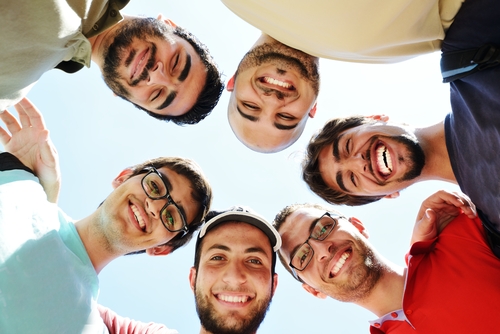Today marks the start of Ramadan, the ninth month of the Islamic calendar and an event which many Muslims will take part in globally. Those taking part will fast (not eat or drink anything) during daylight hours for 29-30 days, and will only eat one meal just before dawn (‘suhoor’ or ‘sehri’) and one meal after sunset (iftar). The end of Ramadan is marked by ‘Eid-ul-Fitr’, the Festival of the Breaking of the Fast, whereby a special celebratory meal is eaten. Alongside fasting, Ramadan is a time to pray, reflect and uphold community values – part of the Five Pillars of Islam
WHO TAKES PART?
Healthy Muslims are expected to observe Ramadan, but there are exceptions for children, pregnant & breastfeeding women, those with diabetes and/or those who are ill. This is because fasting is very physically and mentally demanding and should not be undertaken by groups whose health could be severely impaired
HOW DOES THE BODY COPE DURING RAMADAN?
Due to strict mealtimes before dawn and after sunset only, the body will use up the energy from these meals eaten before relying on its inner stores of carbohydrate (in liver & muscles) and fat (in fat cells across the body). Fluid can only be stored short-term and so the kidneys will try to reduce the amount of fluid excreted via urine.
WHAT ARE SOME KEY HEALTHY EATING TIPS FOR RAMADAN?
It is vital to nourish the body properly during Ramadan, to help avoid severe dehydration and malnourishment, as well as unpleasant side effects such as headaches, fatigue and low mood.
- Ensure the body is receiving enough energy at each meal; there should be sources of good-quality carbohydrate, protein and fat (ideally unsaturated such as olive oil, avocadoes, oily fish and nuts) on the plate
- Opt for complex, high fibre starchy carbohydrates such as wholegrain bread, pasta, rice, cereals, and potatoes, to provide slow-release energy, keep you fuller for longer and reduce cravings for simple carbohydrates such as biscuits, cakes and chocolate
- Avoid fried and salty foods; these will dehydrate you by drawing more water into the urine
- Use the dawn meal especially to rehydrate with extra fluid for the day ahead; good options are plain water, milk, yoghurt, soups/broths. Fruits and vegetables also provide fluid so don’t forget these either!
- When breaking a fast, try to eat slowly and chew properly to avoid digestive discomfort and ensure your brain has time to register that you have eaten. This will also help with portion control and ensure you are not eating until you feel uncomfortably full.

